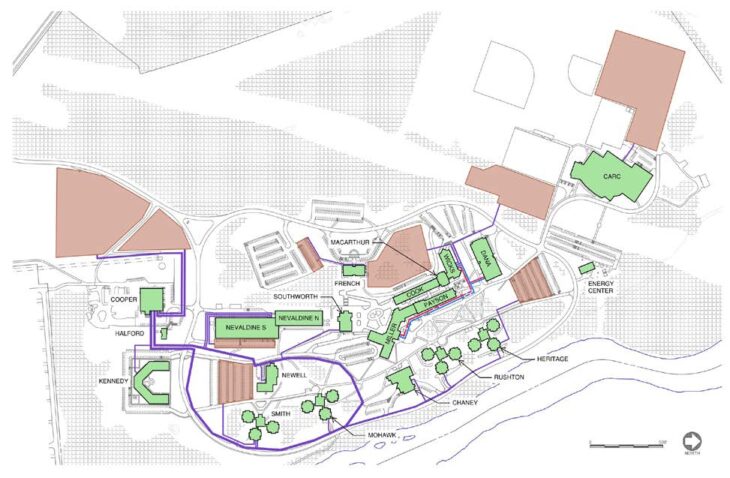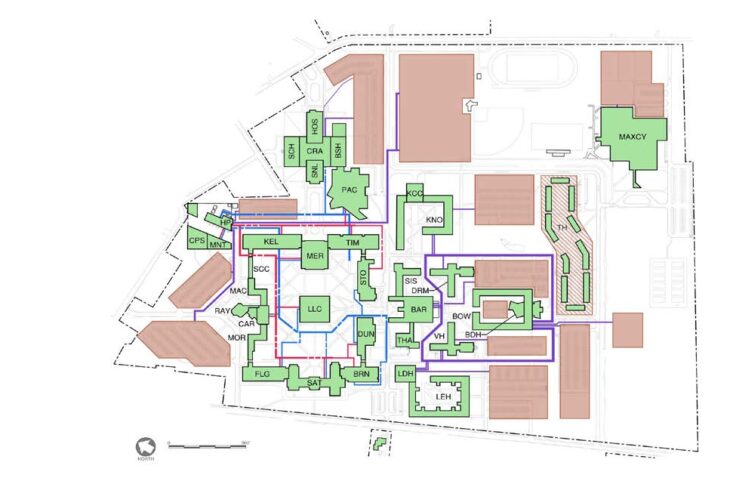Clean Energy Master Plans
The project: Clean Energy Master Plans (CEMPs) were desired by The State University of New York (SUNY) for its Potsdam, Plattsburgh, Canton, and Polytechnic (Utica) campuses. IMEG, an NYSERDA FlexTech Consultant, developed the plans and collaborated with SUNY, the New York State Energy Research and Development Authority (NYSERDA), and the State University Construction Fund.
Project goals: Conduct ASHRAE Level II Audits for buildings greater than 5,000-sf and develop implementation scenarios for achieving carbon neutrality by 2025 at each campus
Project approach: Each master plan was developed through energy and concept design services following energy analysis and reduction recommendation best practices. Existing energy use data was first gathered and analyzed at each campus. This included energy used by each building and the whole campus; how the energy is used; corresponding GHG emissions; and energy performance compared to other university and building benchmarks. Energy audits were then conducted to better understand existing building energy use and identify appropriate energy efficiency measures (EEMs), which were evaluated through energy modeling. Finally, each report provided recommendations and paths for achieving the state’s Climate Act goals. The financial capital investment that will be required for the building and campus infrastructure improvements also was quantified.
Design highlights: Technology solutions in various combinations were recommended for each building. These solutions included fourth- and fifth-generation (4G and 5G) district geothermal systems or electric boilers—each option paired with a variety of other EEMs most appropriate for each building.
Outcome: Each CEMP outlines applications of technologies to achieve energy and greenhouse gas (GHG) emissions reductions and the phase-out of fossil fuel use through electrification—with phased steps to be taken at both the building and the campus levels from now through 2050.
Project benefits: CEMPs such as this play a vital role in the education sector, where institutions are faced with decarbonization mandates, poor-performing and aging buildings, and other energy-related challenges. These CEMPs also align with other campus planning efforts and, due to upgrades they will bring to many buildings, will solve existing operations and maintenance challenges—all while reducing energy costs. The project also further establishes SUNY as one of the largest New York State entities to take steps to reduce GHG emissions. Furthermore, as many students recognize climate change as an existential threat, such master plans also can be considered a recruitment tool.











